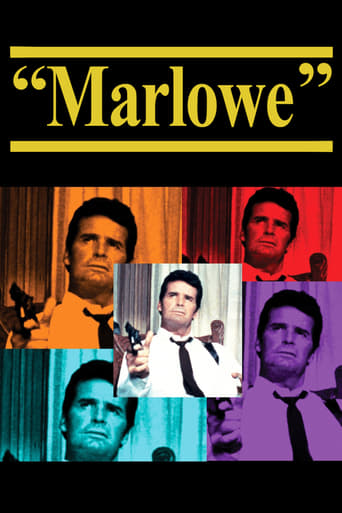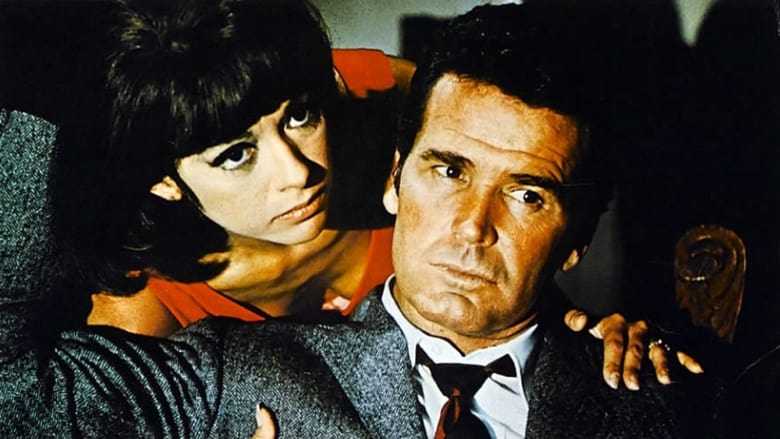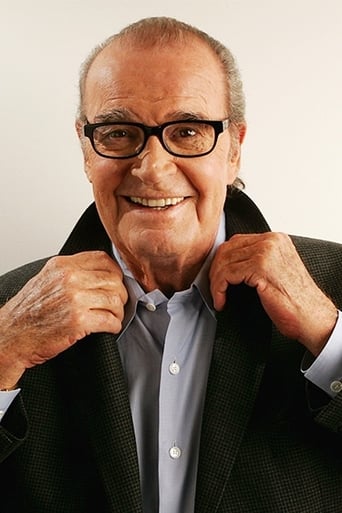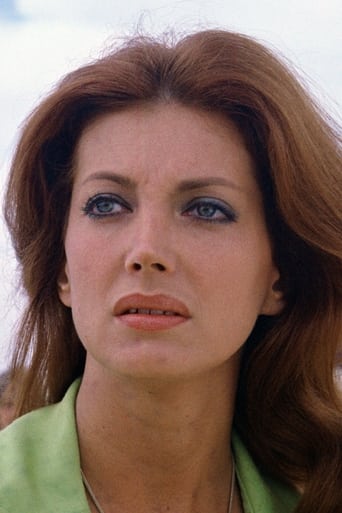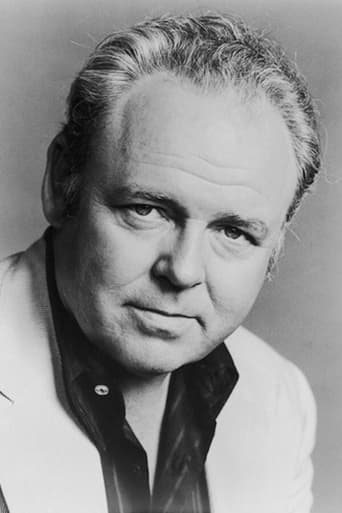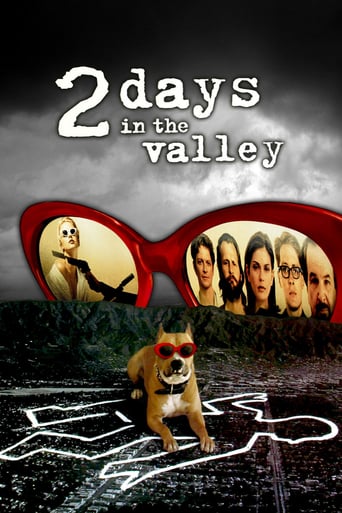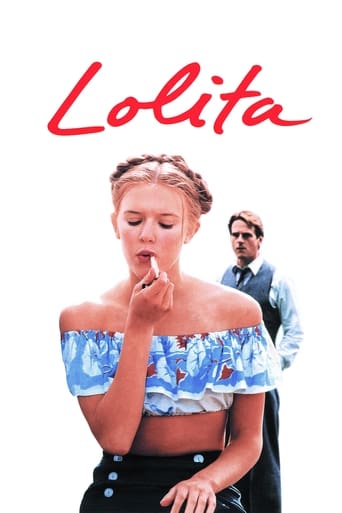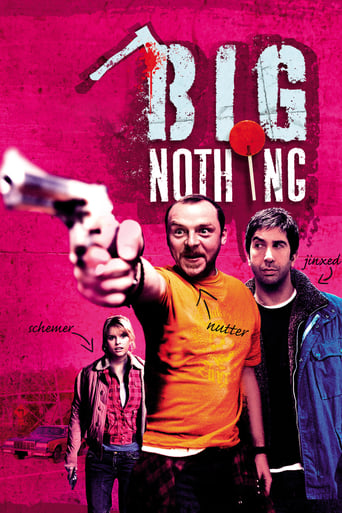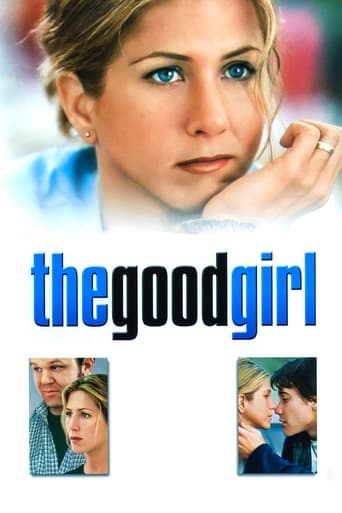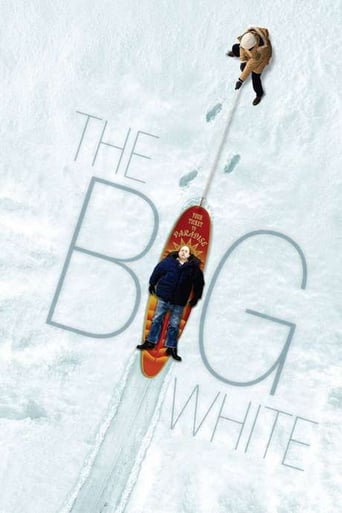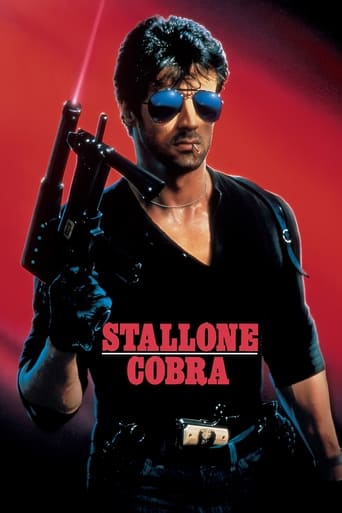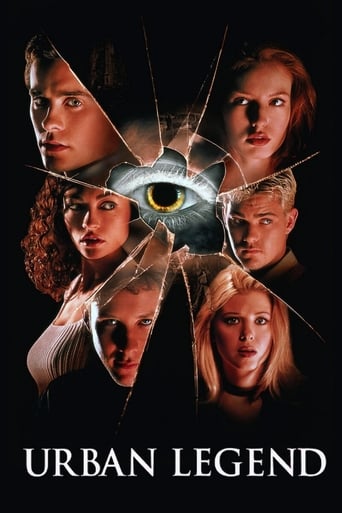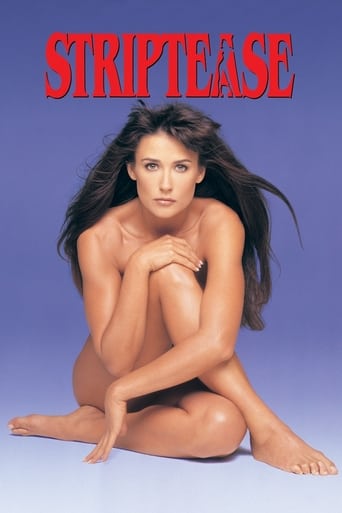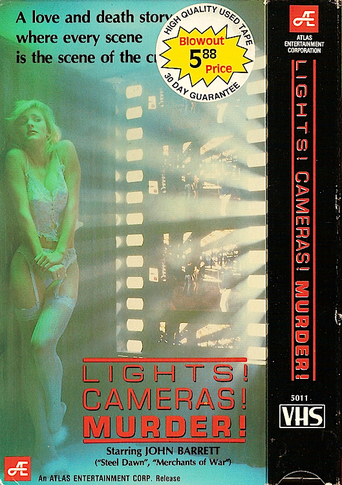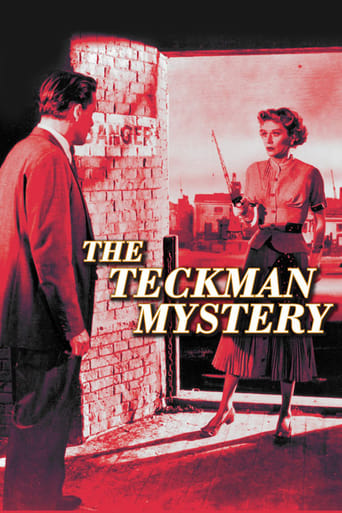Marlowe (1969)
Mysterious Orfamay Quest hires Los Angeles private investigator Philip Marlowe to find her missing brother. Though the job seems simple enough, it leads Marlowe into the underbelly of the city, turning up leads who are murdered with ice picks, exotic dancers, blackmailed television stars and self-preserving gangsters. Soon, Marlowe's life is on the line right along with his case.
Watch Trailer
Cast


Similar titles
Reviews
To me, this movie is perfection.
It's easily one of the freshest, sharpest and most enjoyable films of this year.
Blistering performances.
The film never slows down or bores, plunging from one harrowing sequence to the next.
Though James Garner does a good job as Raymond Chandler's immortal private eye, Marlowe (1969) is just a passable mystery thriller. The pacing is a big sluggish and aside from Bruce Lee smashing up Garner's office, nothing about the movie sticks out in the mind. When it comes to post-classic Hollywood takes on Chandler, you're better off with The Long Goodbye or Farewell My Lovely, both from the 1970s.Marlowe is best as a time capsule of the late 1960s. The jazzy soundtrack, mod and hippie fashions, and the locales all reek of the period, and that was where most of this viewer's pleasure was found. If that's enough for you, then catch it on TCM whenever they play the thing.
Marlowe is directed by Paul Bogart and adapted to screenplay by Stirling Silliphant from the novel The Little Sister written by Raymond Chandler. It stars James Garner, Gayle Hunnicut, Carroll O'Connor and Rita Moreno. Music is by Peter Matz and cinematography by William H. Daniels.Los Angeles private detective Philip Marlow (Garner) is working on what he thinks is a simple missing persons case, how wrong he is!Q as in Quintessential - U as in Uninhibited - E as in Extrasensory - S as in Subliminal - T as in Toots!Another of the interpretations for the great Chandler creation of Philip Marlowe, unsurprisingly met with mixed notices - just as all the others have done. You do wonder what Chandler would have made of the role portrayals that came out post his death? I like to think he very much would have enjoyed Garner's take, because this Marlowe is a quip happy wise guy, unflappable and cool, he portrays so much with just a glance, and the girls love him.The story is juicy in its little complexities, spinning Marlowe into muddy waters the further he investigates things. His life is always under threat, be it by serial ice-pick users or Asian martial artists (Bruce Lee no less in a nutty couple of scenes) wishing to inflict death, or of arrest by an increasingly frustrated police force. Bogart and Daniels keep the whole thing stylish looking, with film noir camera tricks and colour photography infusing the period details. While the supporting cast, notably the ladies, give Garner some splendid support.It's a different Marlowe for sure, but a thoroughly engaging and entertaining one. 7/10
Much as I like Robert Altman's 1973 riff on Chandler's The Long Goodbye, I find it strange this James Garner/Paul Bogart take on The Little Sister, made four years earlier, is often overlooked, and that many critics consider Garner miscast as hardboiled Philip Marlowe. There are so many similarities between the two films, it seems impossible to think Altman was not influenced by this earlier effort.As with Chandler's novels, the thread of familial relationships runs strongly in the background of both movies. Marlowe helmer Paul Bogart's daughter Jennifer was married to The Long Goodbye's star Elliot Gould during this period. As if that isn't co-incidence enough, the father and daughter share the same surname as Humphrey Bogart, who is held by many (though not me) to be the ideal Marlowe in the 1946 The Big Sleep.There are further co-incidences of an almost familial nature. Gayle Hunnicut, female star of Marlowe, reappears as a femme fatale in the Powers Boothe Marlowe series of the 1980s, while the apartment Gould uses in The Long Goodbye also makes a guest appearance in the Boothe episodes. Also The Long Goodbye's script writer Leigh Brackett co-wrote the screenplay to the Bogie The Big Sleep almost three decades earlier. The coincidences just keep mounting up...But let's just look at the similarities now between Marlowe and The Long Goodbye.* Both tales are updated from their 1940s settings, but in both Marlowe is obviously a man out of his time. His ethics, dress and moral code are at odds with everyone else around him. In both films, Marlowe could easily be a figure from the '40s instead of the updated setting he finds himself in.* The hippy, drug culture of the 1960s and 1970s is visible it the background of both films. This counterculture only goes to underscore how Marlowe is entirely out of step with the times he finds himself in.* In both films, Marlowe is closer to Chandler's errant knight, going down mean streets while himself being mean, than the two-fisted Humphrey Bogart of Howard Hawks's The Big Sleep.* Both films have enigmatic endings, and leave Marlowe walking away from crime scenes in a way he did not in the novels; it is almost as if the 1940s morals make Marlowe so sick to the stomach he can't be bother with clearing the modern messes he finds himself in any more. * Both films have music scores that consist of different versions of the same tune being played over and over, though sadly the score to the 1969 film never seems to have been released.OK, so some of things elements are implicit in the books. Marlowe's morality was as probably as outdated in 1940s Hollywood as it was in the same town 30 years later, and the ending of Chandler's novel The High Window is at least as enigmatic as the endings of these two films, in the fact that the true guilty parties are never punished. Also, both films are in keeping with their era. A trait they share with another underrated Marlowe film, the 1978 remake of The Big Sleep with Robert Mitchum (which for my money is better than the Bogart/Hawks version any day for being much closer to the book, despite being directed by perennial journeyman Michael Winner) is that of being updated to the-then present day. However, Winner goes a step further than Bogart or Altman by moving the action to Britain -- a glossy, glamorous London, unrecognisable as such to those who lived there at the time, to be sure, and as much a fantasy as Bay City in Chandler country -- but this change in locale underscores the universality of the world Chandler had created.The crimes in all these stories would not be out of place today and had their equivalent in the times of that other great Marlowe, Christopher, and his contemporary, Shakespeare. The small, mucky, grubby crimes of the Quests, the Wades/Lennoxes and the Sternwoods, as well as the perpetually corrupt police and double-dealing officials, small-time reporters and shiftless grifters, are as true of the real underworld today as they were when Chandler wrote his stories, or even a thousand years before that.In Marlowe, it is human nature that is on display, and the themes of the story -- family breakdown, blackmail, murder and someone with the courage to stand up against such human excrescence -- would work as well in the internet age as the did in 1969. Perhaps even better.It's true this film has faded more than The Long Goodbye. Its obvious back projection and TV-style photography sometimes let it down and the fashions look more dated than in the other Marlowe films of the same era, despite being only a little older than them. (Indeed, it plays as trail-run for Garner's later TV success, The Rockford Files.) But for all that, it is as entertaining and as thought-provoking as Altman's film, and Garner's performance carries the whole thing effortlessly along. It is an unjustly ignored treasure rather than a guilty pleasure.
Taking a brief break from a string of obscure and not so obscure horror movies, I thought this might provide some light relief. Its bright and colourful enough but the sparkling humour doesn't last too long into the film which becomes pretty complicated but is still fun to watch. True enough to the Chandler story, Garner is maybe just a little too one note. Rita Moreno, on the other hand puts in an amazing performance, complete with a super striptease sequence at the end. Bruce Lee was a surprise participant, providing, what I assume was intended to be a comic turn. This is not as good as the early b/w Chandler movies nor as good as the 1973 Altman movie, The Long Goodbye (Gould might have got some tips from Garner's performance in this) but its a decent enough effort.

